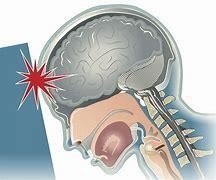A patient was involved in a fight and was hit in the head with a chair. The emergency room physician noted the following signs and symptoms:
A patient appears confused and does not remember being in a fight: the patient was brought in by a friend. The patient is having problems concentrating, dizziness, and flat affect. Which condition is indicated by the physician's findings?
Cerebral ischemia
Cerebral edema
Cerebral concussion
Cerebral hemorrhage
The Correct Answer is C
A cerebral concussion is a mild traumatic brain injury that occurs when a blow to the head causes the brain to move rapidly inside the skull, resulting in temporary changes in brain function. A concussion can cause confusion, memory loss, impaired concentration, dizziness, headache, nausea, blurred vision, and mood changes. Most concussions resolve within a few days or weeks with rest and monitoring.

Nursing Test Bank
Naxlex Comprehensive Predictor Exams
Related Questions
Correct Answer is D
Explanation
This condition is an infection of the inner lining of the heart chambers and valves, which can be caused by various microorganisms that enter the bloodstream from different sources. The etiologies listed above are all potential risk factors for developing endocarditis.
Correct Answer is B
Explanation
Naïve T cells are a type of white blood cell that has not encountered a specific antigen before and are ready to respond to new infections. As people age, the number of naïve T cells decreases due to the shrinking of the thymus gland, which produces and matures T cells. This reduces the ability of the immune system to recognize and fight new pathogens and lowers the effectiveness of vaccines.
Whether you are a student looking to ace your exams or a practicing nurse seeking to enhance your expertise , our nursing education contents will empower you with the confidence and competence to make a difference in the lives of patients and become a respected leader in the healthcare field.
Visit Naxlex, invest in your future and unlock endless possibilities with our unparalleled nursing education contents today
Report Wrong Answer on the Current Question
Do you disagree with the answer? If yes, what is your expected answer? Explain.
Kindly be descriptive with the issue you are facing.
